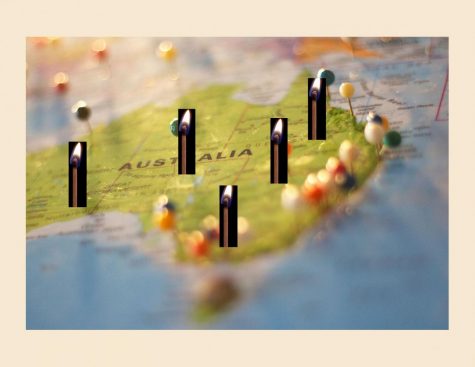The Beauty of Being Bilingual
Language is key to understanding cultures
February 18, 2020
What ties you to your culture? Is it the food? Is it the people? Or is it the language? Many of us don’t put much thought into it, especially when you only speak one. For those who speak more than one language, words mean more than just communication.
“It just brings me closer to my culture and my identity,” sophomore Sanjana Anand said. “It really shapes who I am.”
Anand moved to America from India when she was only 4 years old. Even though she is no longer encompassed by the traditions and festivals that she remembers from India, her ability to communicate her home language brings her comfort.
“My family knows English, but when I talk to my family back in India we speak in Tamil. It brings me closer to my culture,” Anand said.
For those who are from America and have always lived here, we don’t think much about our language and our culture. In a way it’s all here with us, for immigrants being bilingual is a way to stay connected to their roots.
 “I like being bilingual. It allows me to connect to people from my own country and you share the culture with them,” senior Suleyman Alasgari said. “If you don’t know the language you lose half the culture.”
“I like being bilingual. It allows me to connect to people from my own country and you share the culture with them,” senior Suleyman Alasgari said. “If you don’t know the language you lose half the culture.”
Alasgari grew up in Russia, and he now appreciates his ability to speak in English and Russian and notices its importance.
“I learned my language from my parents. I moved to Moscow, Russia at the age of 6 so I knew that the language is very encompassing, it reminds me of home,” Alasgari said. “It reminds me of another time.”
Language is a link to one’s culture; it’s something that sticks with you wherever you are.
“Right now we’re sitting here in Liberty High School, back there it’s not as good as here. Russia is a dog eat dog type country. Your work ethic will not equate to how successful you will be in your career,” Alasgari said. “For example, let’s say you try your hardest – you won’t get anywhere, but here the freedom of America allows you to put in the amount of work and do a good job, you will be good.”
When we think about our language, we don’t usually think about the feeling of each word. It’s something implied, but when you have two words that mean the same thing when translated they don’t usually hold the same significance.
“I usually think in both [Spanish and English]. Words in Spanish and English have different meanings to me and a different feeling. For example, when I say ‘love’ in Spanish, it has a different meaning to me then when I say it in English,” freshman Luis Sanchez said.
Language is a part of who we are but more importantly, it’s a link to different worlds that enables us to connect us to our roots. It brings us closer to our family, culture and identity. Language is everything, and the ability to know and speak more than one is extraordinarily important.




